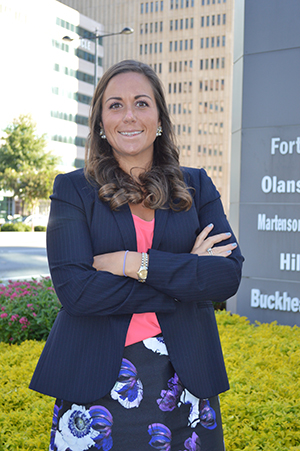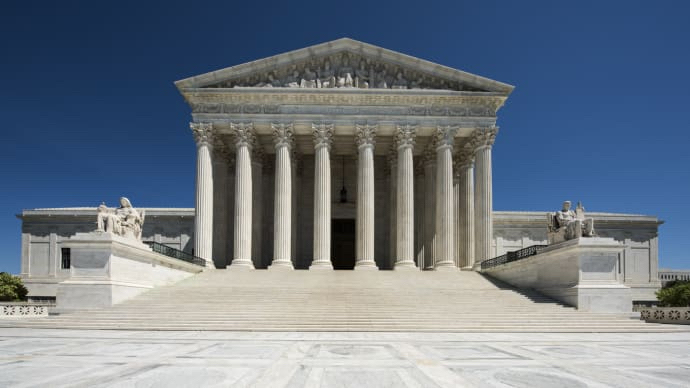By Bianca A. Meador
All eyes will be on the U.S. Supreme Court on October 8, 2019, when it is expected to hear oral argument in three cases raising the issue of whether sexual orientation and gender identity are within the scope of “sex” and thus covered by Title VII of the Civil Rights Act of 1964. The definition of “sex” under Title VII, and whether the term incorporates sexual orientation and/or gender identity, is currently the subject of uncertainty and a vigorous judicial debate. Therefore, the Supreme Court is being asked to include “Gender Identity” as a protected class under Title VII and forbid discrimination on the basis of sexual orientation.
The Court has notably declined to hear cases aimed at resolving the meaning of “sex” in Title VII in recent years; however, its grant of certiorari in these three cases signals the Court may now be ready to address these controversial issues. These three cases are some of the biggest facing the justices this term and have monumental impacts on the future in the employment industry.
BOSTICK
The Supreme Court has consolidated the first two cases it intends to hear on October 8: Bostock v. Clayton County and Altitude Express v. Zarda. Bostock is out of the Eleventh Circuit, where Gerald Bostock was fired from his job as a welfare service coordinator. Bostock alleges he was terminated from his position after his employer learned he was homosexual and played in Hotlanta Softball, a gay sports league. The employer, on the other hand, claims the termination was due to an internal audit of the program funds he managed. According to his employer, Bostock was ultimately terminated for “conduct unbecoming of its employees.” The district court in Georgia dismissed his lawsuit for failure to state a claim, finding that Bostock’s claim relied on an interpretation of Title VII as prohibiting discrimination on the basis of sexual orientation. Bostock appealed the ruling to the Eleventh Circuit, where the court continued to uphold years of prior rulings by concluding sexual orientation is not a protected class under the Civil Rights Act. The Eleventh Circuit panel pointed out that it could not overrule a prior panel’s holding in the absence of an intervening Supreme Court or Eleventh Circuit en banc decision. The Supreme Court, by deciding to hear Bostock, has indicated it may now intervene and determine whether discrimination against any employee because of sexual orientation constitutes prohibited employment discrimination “because of sex.”
ZARDA
The Zarda matter is out of the Second Circuit. Donald Zarda was a homosexual skydiving instructor in 2010 for Altitude Express. Zarda alleges he was terminated from his position after revealing his sexuality to a customer. The female customer informed Altitude Express that Zarda had inappropriately touched her and disclosed his sexual orientation to excuse his behavior. In response to this complaint, Zarda’s boss fired him. Zarda denied touching the client inappropriately and claimed that he was fired solely because of his reference to his sexual orientation. He brought a claim in federal court alleging, among other things, that Altitude Express violated Title VII by terminating him because of his sexual orientation. The district court ruled for Altitude Express, finding that Title VII does not protect against discrimination based on sexual orientation. Zarda appealed to the Second Circuit, which initially ruled for Altitude Express as well. The panel declined Zarda’s request that it reconsider its interpretation of Title VII and overturn previous decades of decision, as only the court sitting en banc can do that. The Second Circuit then agreed to rehear the case, en banc and set new precedent, finding that Title VII’s prohibition on discrimination because of sex necessarily includes discrimination because of sexual orientation. The Second Circuit’s ruling contradicts that of the Eleventh Circuit, thus prompting their consolidation in front of the Supreme Court. The Court will review the Second Circuit’s ruling that Zarda could pursue a Title VII claim against his former employer.
These two cases present major questions for employers moving forward. In both cases, the respective employers claim they had valid performance and policy reasons for each employee’s termination. However, each of these terminations came soon after the employer became aware of their employee’s sexual orientation and gender identification, causing each employee to question the reason and timing of their terminations. The Court’s decision in each of these cases has the potential to change the landscape of employment law, as it pertains to employee discrimination, nationwide.
R.G & G.R. HARRIS FUNERAL HOMES
The third case before the Court is R.G. & G.R. Harris Funeral Homes v. Equal Employment Opportunity Commission. Harris Funeral Homes come from the Sixth Circuit and involves the termination of a transgender employee. The Supreme Court will determine whether Title VII prohibits discrimination against transgender persons based on their status as transgender or sex stereotyping. Aimee Stephens, the former funeral director for Harris Funeral Homes, was terminated after she informed her employer that she was transgender. For most of her employment at the Funeral Home, Stephens lived and presented as a man and ultimately made the decision to inform her employer and co-workers of her gender identity. Stephens was terminated two weeks after she informed her devoutly Christian owner that she was transgender. The Equal Employment Opportunity Commission (“EEOC”) brought a lawsuit on behalf of Stephens, against the funeral home, alleging that it had violated Title VII by terminating Stephen’s employment on the basis of her transgender or transitioning status and her refusal to conform to sex-based stereotypes. The district court granted summary judgment to her employer. The Sixth Circuit reversed the lower court’s ruling, holding that the funeral home’s termination of Stephens based on her transgender status constituted sex discrimination in violation of Title VII. Harris Funeral Homes now challenges the Sixth Circuit’s determination that Title VII prohibits discrimination on the basis of “gender identity” under Title VII.
DIFFERING OPINIONS
Not only do these cases present a divide among the circuits, but they portray a clear difference of opinion between various governmental agencies. The EEOC, who filed the Harris Funeral Homes lawsuit on behalf of Aimee Stephens, has taken the position that sex discrimination under federal law prohibits an employer from treating an applicant or employee unfavorably because of that person’s gender identity, including transgender status and sexual orientation.
The U.S. Department of Justice (“DOJ”), on the other hand, filed an amicus curiae brief in the Harris Funeral Homes case arguing that sexual orientation and/or gender identity are not protected classes under “sex” as covered by Title VII. In its brief, the DOJ notes that Congress did not include transgender people and gender identity when Title VII of the 1964 Civil Rights Act was originally passed, and Congress has not passed any law that would add gender identity to the statute.
While many state and local governments prohibit discrimination based on sexual orientation and gender non-conformity, others have not afforded any protection to members of the LGBTQ community regarding workplace discrimination. Thus, the Supreme Court’s decision may dramatically impact the future of employment law. Decisions in each of these cases will be expected no later than June 2020.

Attorney
Martenson Hasbrouck & Simon LLP bmeador@martensonlaw.com
www.martensonlaw.com
